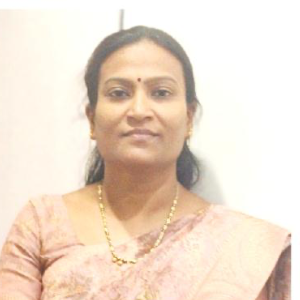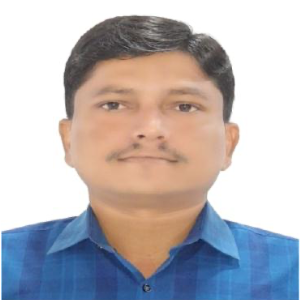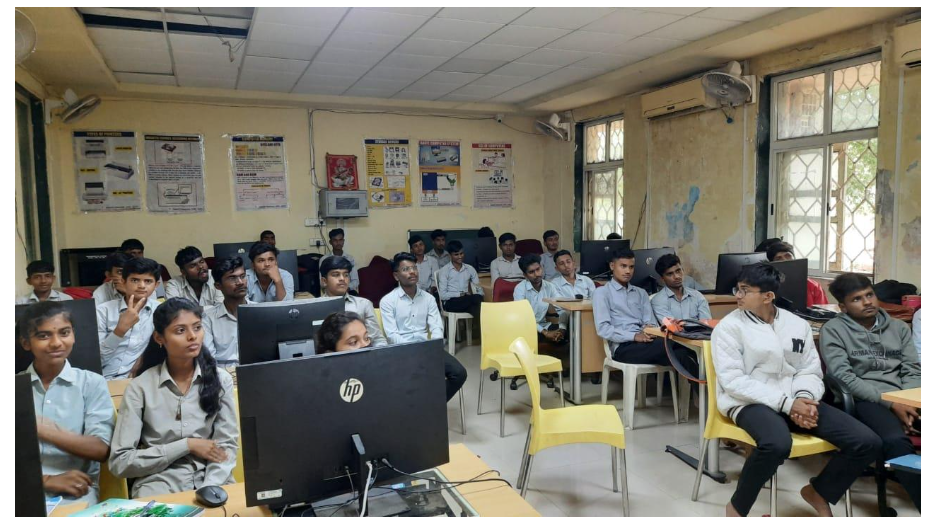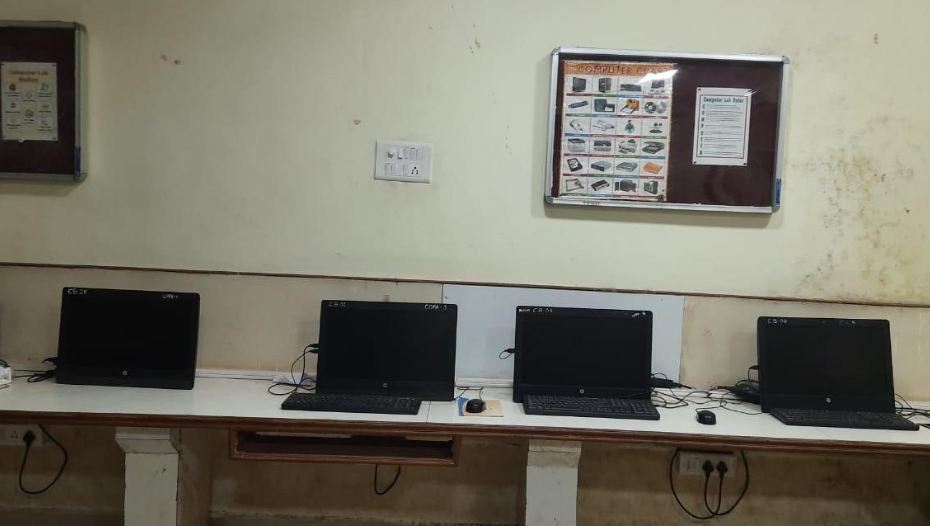COPA (Computer Operator and Programming Assistant)
SVK Govt. ITI Latur
✓ Course Overview
The Computer Operator and Programming Assistant (COPA) trade at Government Industrial Training Institute (ITI) Latur is a one-year full-time vocational training program under the Craftsmen Training Scheme (CTS), affiliated with the National Council for Vocational Training (NCVT). This trade is designed to impart essential computer skills to students and help them develop the capabilities to operate various computer systems, perform data entry tasks, and write simple code for web and desktop applications.
In today’s fast-evolving digital world, computer literacy is not just an advantage-it’s a necessity. The COPA trade at Govt ITI Latur is one of the most sought-after short-term vocational courses, aimed at equipping students with essential computer and IT skills that are relevant across industries.
This one-year course is ideal for students who have passed their 10th standard and want to build a career in the Information Technology sector. The curriculum is structured to cover a wide range of topics including computer operations, office tools, internet usage, data entry, basic programming, web design, and digital security-preparing students for both employment and entrepreneurship in the IT domain.
✓ Vision & Mission
Vision
“To nurture digitally skilled youth capable of adapting to the dynamic technological world by providing comprehensive training in computer operations and programming, thereby empowering them to contribute meaningfully to India’s digital economy.”
Mission
- To train students in modern computer operations, software applications, basic programming, and digital tools.
- To provide students with high-quality vocational training in fundamental and advanced IT concepts.
- To instill confidence and encourage entrepreneurship through digital freelancing, e-commerce skills, and startup ideas.
TRAINING SYSTEM
1.1 GENERAL
The Directorate General of Training (DGT) under Ministry of Skill Development & Entrepreneurship offers a range of vocational training courses catering to the need of different sectors of economy/Labour market. The vocational training programmes are delivered under the aegis of Directorate General of Training (DGT). Craftsman Training Scheme (CTS) with variants and Apprenticeship Training Scheme (ATS) are two pioneer schemes of DGT for strengthening vocational training.
“Computer Operator and Programming Assistant” trade under CTS is one of the most popular courses delivered nationwide through network of ITIs. The course is of one year duration. It mainly consists of Domain area and Core area. The Domain area (Trade Theory & Practical) imparts professional skills and knowledge, while Core area (Employability Skills) imparts requisite core skill, knowledge and life skills. After passing out the training program, the trainee is awarded National Trade Certificate (NTC) by DGT which is recognized worldwide.
Trainee needs to demonstrate broadly that they are able to:
- Read and interpret technical parameters/documentation, plan and organize work processes, identify necessary materials and tools.
- Perform task with due consideration to safety rules, accident prevention regulations and environmental protection stipulations.
- Apply professional knowledge & employability skills while performing the job and repair & maintenance work.
- Check the job/ assembly as per drawing for functioning identify and rectify errors in job/ assembly.
- Document the technical parameter related to the task undertaken.
1.2 PROGRESSION PATHWAYS
- Can join industry as computer operator and will progress further as assistant programmer, programmer and can rise up to the level of senior programmer. Can become Entrepreneur in the related field.
- Can join Apprenticeship programme in different types of industries leading to National Apprenticeship certificate (NAC).
- Can join Crafts Instructor Training Scheme (CITS) in the trade for becoming instructor in ITIs.
- Can join Advanced Diploma (Vocational) courses under DGT as applicable.
1.3 COURSE STRUCTURE
Table below depicts the distribution of training hours across various course elements during a period of one year:
| Sr. No. | Course Element | Notional Training Hours |
|---|---|---|
| 1 | Professional Skill (Trade Practical) | 840 |
| 2 | Professional Knowledge (Trade Theory) | 240 |
| 3 | Employability Skills | 120 |
| Total | 1200 |
Every year 150 hours of mandatory OJT (On the Job Training) at nearby industry, wherever not available then group project is mandatory.
| On the Job Training (OJT)/ Group Project | 150 |
Trainees of one-year or two-year trade can also opt for optional courses of up to 240 hours in each year for 10th/ 12th class certificate along with ITI certification, or, add on short term courses.
1.4 ASSESSMENT & CERTIFICATION
The trainee will be tested for his skill, knowledge, and attitude during the period of course through formative assessment and at the end of the training programme through summative assessment as notified by the DGT from time to time.
a) The Continuous Assessment (Internal) during the period of training will be done by Formative assessment method by testing for assessment criteria listed against learning outcomes. The training institute must maintain individual trainee portfolio as detailed in assessment guideline. The marks of internal assessment will be as per the formative assessment template provided on www.bharatskills.gov.in
b) The final assessment will be in the form of summative assessment. The All-India Trade Test for awarding NTC will be conducted by Controller of examinations, DGT as per the guideline. The pattern and marking structure are being notified by DGT from time to time. The learning outcome and assessment criteria will be basis for setting question papers for final assessment. The examiner during final examination will also check individual trainee’s profile as detailed in assessment guideline before giving marks for practical examination.
1.5 PASS REGULATION
For the purposes of determining the overall result, weightage of 100% is applied for six months and one year duration courses and 50% weightage is applied to each examination for two years courses. The minimum pass percent for Trade Practical and Formative assessment is 60% & for all other subjects is 33%.
2. JOB ROLE
- Computer Operator: perates computer and peripheral equipment to process business, scientific, engineering, or other data, according to operating instructions. Enters commands, using keyboard of computer terminal, and presses buttons and flips switches on computer and peripheral equipment, such as tape drive, printer, data communications equipment, and plotter, to integrate and operate equipment, following operating instructions and schedule. Loads peripheral equipment with selected materials, such as tapes and printer paper for operating runs, or oversees loading of peripheral equipment by Peripheral Equipment Operators. Enters commands to clear computer system and start operation, using keyboard of computer terminal. Observes peripheral equipment and error messages displayed on monitor of terminal to detect faulty output or machine stoppage. Enters commands to correct error or stoppage and resume operations. Notifies supervisor of errors or equipment stoppage. Clears equipment at end of operating run and reviews schedule to determine next assignment. Records problems which occurred, such as down time, and actions taken. May answer telephone calls to assist computer users encountering problem. May assist workers in classifying, cataloguing, and maintaining tapes.
- Programming Assistant: installs, maintains, and updates computer programs by making minor changes and adjustments to them under the guidance of computing professionals. Maintains and updates documents of computer programs and installations. Applies knowledge of principles and practices in programming and computing in order to identify and solve problems arising in the course of their work. They may receive guidance from managers or professionals. May supervise other workers also.
- Web Developer: Web Developer is responsible for designing and maintaining web- based applications that include static and dynamic content. This includes the design, layout, and coding of a website. They may work standalone or along with application/functional developers as part of the overall solution that includes a web-based component.
- User Interface Developer: Developer is responsible for creating complex user interfaces for a variety of applications, such as computer programs, databases, and websites.
- Data Communication Analyst/Network Administrator: Data Communication Analyst researches, tests, evaluates, and recommends data communications hardware and software: Identifies areas of operation which need upgraded equipment, such as modems, fibre optic cables and telephone wires. Conducts survey to determine user needs. Reads technical manuals and brochures to determine equipment which meets establishment requirements. Visits vendors to learn about available products or services. Tests and evaluates hardware and software to determine efficiency, reliability, and compatibility with existing system, using equipment such as computer terminal and modem. Analyses test data and recommends hardware or software for purchase. Develops and writes procedures for installation, use, and solving problems of communications hardware and software. Monitors system performance. Trains users in use of equipment. Assists users to identify and solve data communication problem. May write technical specifications to send to vendors for bid. May oversee or assist in the installation of communications hardware. May perform minor equipment repairs.
➤ The key highlights of the COPA course can be found in the table below:
| Particulars | Details |
|---|---|
| Course Name | COPA |
| Full Form | Computer Operator and Programming Assistant |
| Level of Course | Certificate Course [NSQF-3.5] |
| Course Duration | 1 Year |
| Eligibility Criteria | Must have passed class 10 board examination |
| Age Criteria | Must have attained 14 years of age |
| Admission Process | Merit-Basis (Online – https://admission.dvet.gov.in) |
| Course Fees | General Category-1770/-, Reserved Category-970/ |
| Job Profile | Data Entry Operator, Computer Operator |
| Average Starting Salary | INR 10,000 – INR 15,000 per month |
How to Apply:
➤ Online Application form can be filled on https://admission.dvet.gov.in & submitted to nearest ITI College with Xerox Copy of all necessary documents.
COPA Course Syllabus Short Overview
COPA Trade Theory
- Safe Working Practices
- Introduction of Computers
- Introduction to computer system
- Introduction of the Windows Operating System
- Introduction to the booting process
- Introduction to DOS Command Line Interface & Linux Operating Systems
- Using Word Processing Software
- Spread sheet Application
- Power point Presentations
- Database Concepts [MySQL]
- Communicating in a Connected World
- Internet Concepts
- Web Design Concepts
- Introduction of JavaScript
- Advanced Excel Concepts
- E-Commerce
- Cyber Security
- Introduction to Cloud Computing
- Programming language (Python/Java)
COPA Trade Practical
- Safe Working Practices
- Use of Windows Operating System
- Computer Basics and Software Installation
- DOS Command Line Interface and Linux Operating Systems
- Using Word Processing Software
- Using Spread sheet Application
- Power point Presentations
- Database Management with MySQL
- Computer Network
- Create simple static web pages using HTML tags
- Java Script
- Data Visualization or analysis using Excel
- Browse e-Commerce sites to identify products & services
- Cyber Security
Employability Skills
- English Literacy
- I.T. Literacy
- Communication Skills
- Entrepreneurship Skills
- Productivity
- Occupational Safety, Health, and Environment Education
- Labour Welfare Legislation
- Quality Tools
✓ Practical Training Facilities
The course emphasizes hands-on learning. Practical sessions take place in well-equipped computer labs.
✓ Lab Infrastructure Includes:
- Latest Computers with dual-boot OS (Windows/Linux)
- High-speed Internet Connectivity
- Laser Printers, Scanners, Projectors
- UPS Backup & Networking Devices
- Typing practice software (English & Marathi)
- Licensed Microsoft and Open-source Software
- Web Development and IDE Tools
✓ What You Learn at the End of the Course
After successful completion, students will be able to:
- Install and setup operating system and related software in a computer following safety precautions.
- Create, format and edit document using word processing application software.
- Create, format, edit and develop a workbook by using spread sheet application software.
- Create and customize slides for presentation.
- Create and manage database file using MySQL.
- Install, setup/configure, troubleshoot and secure computer network including Internet.
- Develop web pages using HTML and CSS.
- Develop web pages using Java Script.
- Create workbooks with advanced formulae, macros, charts, pivot tables and demonstrate ability to use Power tools.
- Browse, select and transact using E commerce websites.
- Secure information from Internet by using cyber security concept.
- Explain Cloud concepts & services.
- Write programs using Python / Java language.
✓ Career Opportunities After COPA
The COPA course opens doors to multiple career paths in both private and public sectors.
Job Roles You Can Apply For:
- Computer Operator
- Data Entry Operator
- Office Assistant
- Web Designer (Junior level)
- IT Support Technician
- Helpdesk Support Executive
- Freelancer/Blogger / You Tuber
- E-commerce Store Assistant
Employment Sectors Include:
- Government Departments (with certifications)
- Schools and Colleges
- Banks and Finance Companies
- BPO/KPO / Data Centers
- Software Companies
- Hospitals, Hotels, Retail Outlets
- Print Media and Publishing Houses
Self-Employment & Freelancing Scope
One of the best aspects of COPA is its focus on self-employment. Students are encouraged to take up freelance jobs or start their own ventures.
You Can Start:
- A cyber café or online service center
- Freelance typing and documentation services
- A small web design or digital marketing business
- Online content creation (YouTube, Blogging)
- Digital product sales through Shoplift or Amazon
Scope for Higher Education & Certifications
- Advanced Diploma in Computer Applications (ADCA)
- Diploma in Web Development / Programming
- Certifications from platforms like Google, Microsoft, Course, etc.
- National Apprenticeship Certificate (NAC)
Why Choose COPA at ITI Latur?
- Industry-Relevant Syllabus aligned with Digital India initiative
- Experienced Faculty with real-world industry experience
- Modern Computer Labs with up-to-date technology
- Practical & Project-Based Learning approach
- Strong Industry Linkages for placements and apprenticeships
- Soft Skills and Communication Training
FACULTY DETAILS:

Mrs. Kale S.S.
Craft Instructor-COPA
Qualification: Dip. in Computer in Engineering
Experience: 16 Years Teaching Experience
Email: savitri.kale41@mah.gov.in
Mob. No.: 9421985156

Mr. Rathod S.B.
Craft Instructor-COPA
Qualification: B.E (CSE) & Diploma in IT.
Experience: 14 years Teaching Experience.
Email: sandip.rathod78@mah.gov.in
Mob. No.: 9765001743
Infrastructure


